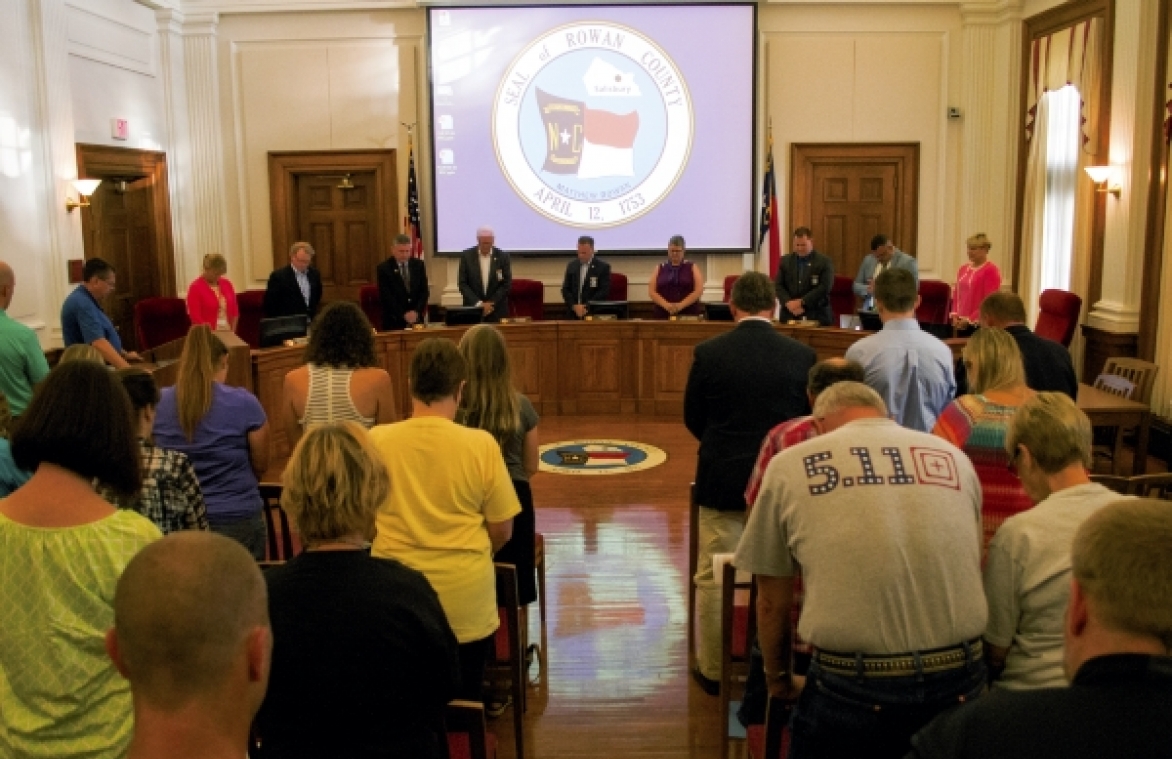The U.S. Supreme Court soon may need to wade once again into the troubled waters of the Establishment Clause to resolve deep division among the federal courts of appeal over the constitutionality of opening local governmental body meetings with official-led prayers.
In September 2017, the full panel of the Sixth U.S. Circuit Court of Appeals upheld the prayer practice at County Commission meetings in Jackson County, Michigan, in Bormuth v. County of Jackson. Meanwhile, in July 2017, the full panel of the Fourth U.S. Circuit Court of Appeals invalidated a similar practice at County Commissions in Rowan County, North Carolina, in Lund v. Rowan County. The panels were divided 10-6 and 10-5 respectively.
In Bormuth, the Sixth Circuit majority reasoned that such prayers were an important part of history and tradition, a respected way for officials to “lend gravity to public business.” The majority reasoned that legislator-led prayer is consistent with prior U.S. Supreme Court decisions Marsh v. Chambers (1983) and Town of Greece v. Galloway (2014). In Marsh, the Supreme Court upheld the Nebraska legislature’s practice of having chaplain-led prayer before sessions. In Galloway, the Court narrowly upheld a New York town’s practice of having different religious leaders in the community open town meetings.
“Most significantly, history shows that legislator-led prayer is a long-standing tradition,” wrote Judge Richard Allen Griffin for the Sixth Circuit majority. “Before the founding of our Republic, legislators offered prayers to commence legislative sessions.”
However, the 4th Circuit took a much different view in Lund. Judge J. Harvie Wilkinson III, wrote for the majority in Lund that “because the commissioners were the exclusive prayer-givers, Rowan County’s invocation practice falls well outside the more inclusive, minister-oriented practice of legislative prayer described in Town of Greece.” In other words, having local government officials lead prayers themselves might create greater coercive pressures upon religious minorities who are in front of these very same local officials.
Undoubtedly, one or both of these cases will be appealed to the U.S. Supreme Court. The Salisbury Post reports that an appeal is likely in the Lund case. There certainly could be an appeal in the Bormuth case too.
Assuming one or both of the cases are appealed, the Justices could have another opportunity to interpret what author Steven Mansfield has called “ten tortured words” – “Congress shall make no law respecting an establishment of religion.”
The Establishment Clause provides for separation between church and state, but there is massive disagreement over how much separation. Some favor complete separation between church and state, while others emphasize the importance of religion in public life. Virtually everyone agrees the Establishment Clause prohibits the creation of a national church or a law that blatantly discriminates against or favors a particular religious sect. After that, agreement seems impossible.
Over the years the Court has created a dizzying array of legal tests to govern church-state issues – the Lemon test, the endorsement test, the coercion test, the legal judgment test, and the history and tradition analysis to name some of the more prominent.
It is not clear how the Court would resolve these cases, other than it is obvious the Justices will disagree. After all, in the Court’s previous legislative-prayer decisions in Marsh and Galloway, the Justices were divided 6-3 and 5-4.
What is clear is that the division between the 4th and 6th Circuits creates what is known in the legal world as a “circuit split.” The lower courts were already divided on this question.
Now the division has become much deeper. The issue cries out for Supreme Court review.
David Hudson is co-editor of The Encyclopedia of the First Amendment, and has written, co-written or co-edited 40 books.

